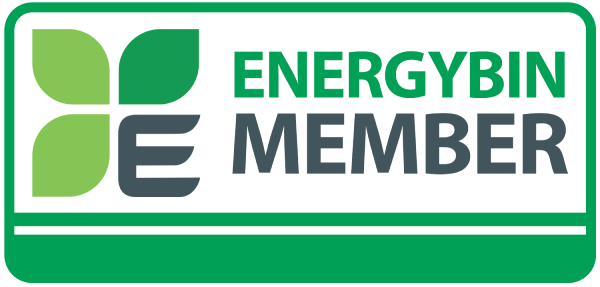End-of-life practices for solar energy are crucial as the use of solar panels becomes more common. Several states recently brought solar panel regulations up for legislation. Some lawmakers are finally recognizing the mounting solar waste issue. About 80 million tons of solar waste could be at our doorstep by 2050; we need to address this before it is too late. Also, the recycling process needs improvement. We must address laws regarding solar panel production and decommissioning and create incentives for end-of-life planning if we want solar energy to help the environment.
Solar Regulation Providing Benefits
Though solar regulations sound concerning, it actually benefits customers, the environment, and the industry as a whole. For instance, Nevada displayed a case for laws and regulations being incredibly profitable. In 2015, net metering and other customer incentives phased out of practice due to complaints from the electric industry and panel installers. This had a drastic effect on panel installation for two years because people weren’t saving nearly as much money from switching to solar energy. This downward trend in panels continued until a bill was signed in 2017. This bill reintroduced net metering, with some restrictions, back into the industry. Immediately, panel installations and job growth spiked across the state. A win-win for everyone involved!
The regulations regarding solar waste will be similarly beneficial, as they will provide potential growth in the industry. Despite being described as solar “waste,” the materials and metals available from decommissioned panels are valuable. Researchers estimate the market worth of the building waste being over 10 billion dollars; however, these numbers are only feasible with enhanced recycling techniques, and efficient decommissioning becoming far more commonplace across the world.
Solar Waste Regulations in Action
Several regulations being written, and considered, will improve the solar industry’s standards and practices; which would prevent the escalation of solar waste. It also incentivizes optimized recycling and end-of-life practices, which means less trash and more panels available for cheaper amounts. Regulations have been difficult to implement due to a lack of concern. Some states have been working to change this over the years.
For example, California is one of the leading states in solar energy production. Having a third of all solar energy production in the United States. This means panels are plentiful across the state, and solar waste could be an issue soon. To help panel owners facing end-of-life, California reclassified solar panels as “universal waste.” Making transportation to recycling centers a more viable option. This is because as “toxic waste,” its previous classification, it was much more expensive to ship. This is a good start, as it helps companies searching for environmental-friendly solutions to damaged, decommissioned, or end-of-life panels. This isn’t a full solution though, as further transportation of materials won’t directly affect the industry standards.
North Carolina took a different approach to prevent solar waste mishandling. Lawmakers implemented a bill banning the dumping of PV panels into landfills. The bill also declared proper standards to the decommissioning process an industry necessity. Preventing dumping solar panels in landfills is a top priority. The outright ban is a strong step to boosting recycling efforts in the state. Enforcing efficient solar disposal practices will boost recycling efforts and encourage more companies to consider end-of-life options a lot sooner. With both regulations combined, the choice to recycle becomes the obvious solution; helping recycling continue to grow in response.
Solar Regulations to Come
Some regulations are still under consideration or have some time before the implementations go into full effect. Most recently, Washington just passed legislation making the manufacturers the ones responsible for recycling their solar panels. All panels manufactured and sold by them must go through proper end-of-life protocols at their expense and benefit. These companies may now have the motivation to improve their manufacturing processes. Designing modern panels to be more easily recyclable will also become a focus, a fantastic example of end-of-life preparation. In the next few years, these end-of-life practices will be implemented. Washington state has a 2023 deadline.
Arizona is a prime state for solar energy, but solar waste could be a growing concern as solar panels become more popular. Legislation is in the making to mitigate the rising number of end-of-life solar panels. The bill will ban dumping solar panels and batteries into landfills; charging manufacturers if they don’t have an end-of-life plan in place. Addressing a manufacturer’s responsibility for their panel’s end-of-life and landfill bans will prevent tons of waste. This also lifts the pressure from the customer, inviting more people to accept solar energy into their homes and businesses.
What You Can Do
Solar waste is still a mounting problem despite various improvements from state to state. Solar energy continues to spread across America, but we are not prepared for the consequences. That said, rising numbers in solar energy production is not a bad thing. Solar energy is incredibly beneficial for companies and homeowners alike. Solar panels should be implemented as often as possible. However, end-of-life practices are also necessary to make solar energy as beneficial as possible, for customers and the environment alike.
Luckily, implementing end-of-life plans has never been more accessible. Companies such as FabTech Solar Solutions specialize in recycling and refurbishing practices for solar projects, big and small. By preparing now, your company can be a leader in the industry. By participating in the solution and not adding to the problem of solar panel waste, you can set the benchmark. Helping environmental and solar industry growth depends on how companies treat a panel’s end-of-life. The more we do now, the less waste we will worry about in the future, and the more solar energy we can produce.
If you’re wondering about what options and costs might be in your solar panel’s foreseeable future, FabTech provides free quotes. Email us at jfreeman@fabtech.net or call 480-813-7280 Ext 108 and ask for Janette Freeman.
For more information on end-of-life practices and news, check out our full website at WWW.FABTECH.NET.



